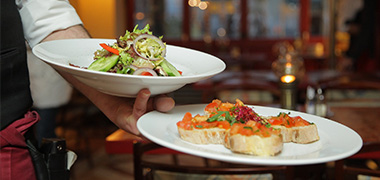
AI Occupational Exposure score unavailable For more insight, research the specific tasks and skills required for the role.
Explore all careersCooks prepare meals in various settings, catering to dietary needs and managing supplies, requiring strong organisation and teamwork skills.
Get qualified to work as a Cook with a course recognised across Australia. Speak to a training provider to learn more.
In Australia, a full time Cook generally earns $1,200 per week ($62,400 annual salary) before tax. This is a median figure for full-time employees and should be considered a guide only. As you gain more experience you can expect a potentially higher salary than people who are new to the industry.
 Courses.com.au Team
Courses.com.au Team
There has been strong employment growth in this industry in recent years. There are currently 38,300 people working in this field in Australia compared to 35,100 five years ago. Cooks may find work across all regions of Australia.
Source: Australian Government Labour Market Insights
 Courses.com.au Team
Courses.com.au Team
A Certificate III in Commercial Cookery is an ideal qualification if you’re interested in starting a career as a Cook. You’ll learn basic cooking and food preparation methods and develop the skills to cook a range of meals, appetisers, salads and desserts. A Certificate III in Catering Operations may also be appropriate.
 Courses.com.au Team
Courses.com.au Team



A Cook prepares food for customers and guests at a restaurant, café or catering venue. You might also work in a residential facility such as an aged care home or workplace camp accommodation. Cooks prepare a range of meals and may have to cater for special dietary needs or create menus for special occasions. You might attend to other tasks such as ordering supplies and checking ingredients.
Cooks should be highly organised and able to attend to several tasks at one time. You should be able to work in a fast-paced work environment and must be able to work as part of a larger kitchen team. It’s important that you can communicate well and can follow instructions closely. Cooks may have to work irregular hours such as nights, weekends or holidays.